February 11
Thomas Alva Edison
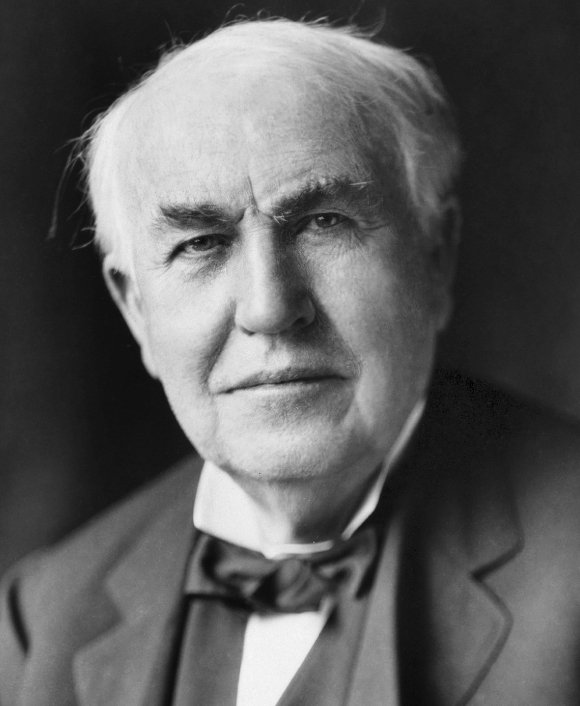
On this date in 1847, Thomas Alva Edison was born in Ohio, the youngest of seven. The inventor, who came to be known as “the Wizard of Menlo Park,” read Gibbon’s Decline and Fall of the Roman Empire before the age of 10 and vowed at age 12 to read the entire contents of the Detroit Public Library, was largely self-taught. Supporting himself at a very early age, Edison sold newspapers, worked for railroad companies and became a telegraph operator.
He invented the commercially viable, long-lasting incandescent bulb, the phonograph, motion picture camera and improved the telegraph and telephone, becoming a highly successful businessman and manufacturer. Edison, who held more than 1,300 U.S. and foreign patents, famously noted: “Genius is one percent inspiration and ninety-nine percent perspiration.”
He was a lifelong freethinker who in his 1925 essay “The Philosophy of Paine” called Thomas Paine “our greatest political thinker.”
“I cannot believe in the immortality of the soul,” he told The New York Times. (Oct. 2, 1910) “Heaven? Shall I, if I am good and earn reward, go to heaven when I die? No — no. … I am an aggregate of cells, as, for instance, New York City is an aggregate of individuals. Will New York City go to heaven?” (D. 1931)
“Nature is what we know. We do not know the gods of religions. And nature is not kind, or merciful, or loving. If God made me — the fabled God of the three qualities of which I spoke: mercy, kindness, love — He also made the fish I catch and eat. And where do His mercy, kindness, and love for that fish come in? No; nature made us — nature did it all — not the gods of the religions.”
— New York Times interview, " 'No Immortality of the Soul' Says Thomas A. Edison" (Oct. 2, 1910)
Lydia Maria Child
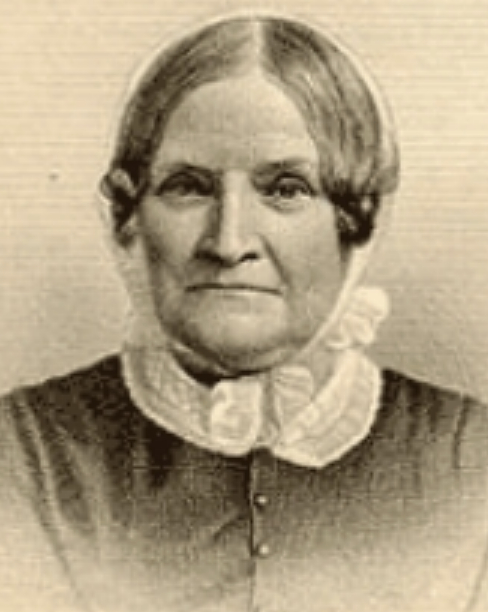
On this date in 1802, Lydia Maria Child (née Francis) was born in Medford, Mass. Considered one of the first U.S. “women of letters,” she became a famous abolitionist, author, novelist and journalist. Her poem “Over the River and Through the Wood” (originally titled “A Boy’s Thanksgiving Day”) became popular as a song: “Over the river and through the wood / to grandfather’s house we go.” After her mother died when she was 12, she went to live with her older married sister in Maine and studied to become a teacher.
She ran a private school, started the first journal for children and wrote several novels and popular how-to books such as The Frugal Housewife, The Mother’s Book and The Little Girl’s Own Book. Her history, The First Settlers of New England, blamed Calvinist-based racism for the treatment of Native Americans. She married David Childs, editor and publisher of the Massachusetts Journal, in 1828 when she was 26.
An Appeal in Favor of That Class of Americans Called Africans recruited many to the anti-slavery movement, but made Child a pariah in Boston society. Her two-volume The History of the Condition of Women, in Various Ages and Nations was published in 1835. She continued abolition work, supporting herself through popular writings and newspaper columns. The Progress of Religious Ideas (1855) rejected theology, dogma, doctrines, and talked of “Providence” as the inward voice of conscience. Her funeral was presided over by Wendell Phillips, who said she was “ready to die for a principle and starve for an idea.” John Greenleaf Whittier recited a poem in her honor and The Truth Seeker memorialized her. D. 1880.
“It is impossible to exaggerate the evil work theology has done in the world.”
— Child, "The Progress of Religious Ideas Through Successive Ages" (1855)
Leslie Nielsen
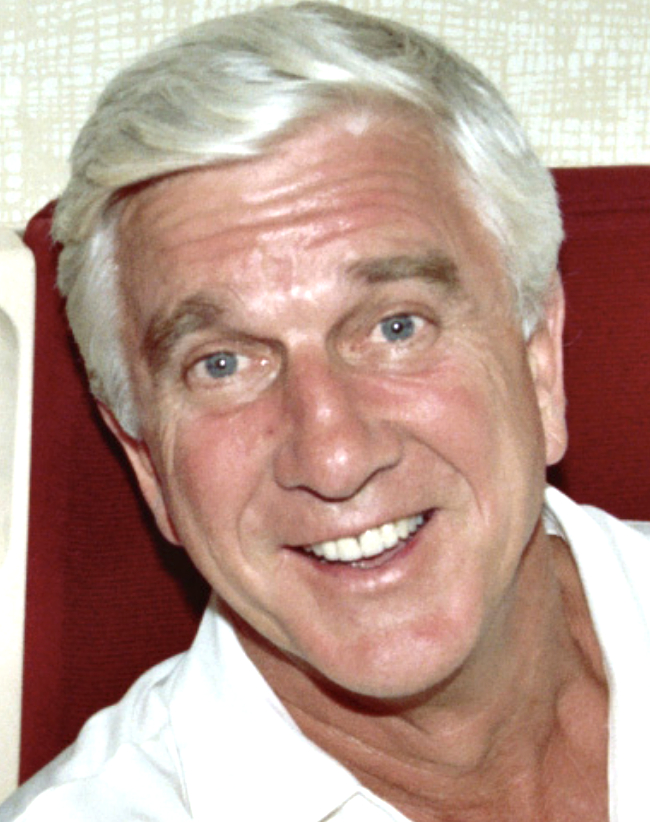
On this date in 1926, actor Leslie Nielsen, the oldest of four sons, was born to Ingvard and Maybelle Nielsen and spent his early childhood in Regina, Saskatchewan, Canada. Nielsen credited his father, a strict disciplinarian and an officer in the Royal Canadian Mounted Police, for giving him his first acting experiences: He frequently had to lie to his father in order to avoid being punished!
When Nielsen and his brother Eric, who grew up to become deputy prime minister, were old enough to start school, the family moved to Edmonton, Alberta. After graduation, Nielsen joined the Royal Canadian Air Force, where he was an aerial gunner for one year overseas. After World War II, he worked at a Calgary radio station, then enrolled in The Lorne Greene Academy of Radio Arts in Toronto.
Falling in love with acting, Nielsen, 23, earned a scholarship to study at the Neighborhood Playhouse in New York City. Quickly given parts on television shows, Nielsen continued in that medium for the next few years, playing dramatic roles. In the 1950s, Nielsen became interested in film, moved to Hollywood and made his big screen debut in “Forbidden Planet” (1956). He made more than 50 films over the next 20 years.
In 1980 Nielsen was an instant hit as the humorless doctor in the comedy spoof “Airplane!” He went on to play the inept police officer, Det. Frank Drebin, in the TV series “Police Squad!” Continuing to hit his stride in comedy, he got his big breakthrough in 1988, reprising the role of Drebin for film in “Naked Gun: Files From the Police Squad.” His success continued with the sequels, “Naked Gun 2 1/2: The Smell of Fear” (1991) and “Naked Gun 33 1/3: The Final Insult” (1994).
Switching back to drama in 1996 but in a new genre, Nielsen played the lead in the stage production of “Clarence Darrow,” a one-man show that had originated with freethinker Henry Fonda. Nielsen’s long career boasted more than 200 films and television programs. Winner of numerous awards, Nielsen received a star on the Hollywood Walk of Fame in 2001, was inducted into Canada’s Walk of Fame and received UCLA’s Jack Benny Award for his comedic roles.
Married and divorced three times, Nielsen resided in Arizona with his fourth wife and longtime friend, Barbaree Earl, until his death at age 84. He had two children. D. 2010.
"There’s an old saying that God exists in your search for him. I just want you to understand that I ain’t looking."
—
Esquire magazine interview, April 2008
Natalie Dormer

On this date in 1982, English actress Natalie Dormer was born in Reading, Berkshire. She studied drama at Webber Douglas Academy of Dramatic Art in London. Dormer is known for playing Anne Boleyn in the television show “The Tudors” and Margaery Tyrell in the HBO fantasy show “Game of Thrones” (2012-16). She also appeared in “Casanova” (2005), a romantic comedy starring Heath Ledger and Sienna Miller, and in “The First Avenger: Captain America” (2011). She was cast as Ilene Adler in the 2013 American adaptation of “Sherlock” titled “Elementary” and had roles in “The Forest” (2016), “In Darkness” (2018) and “The Professor and the Madman” (2019).
On World Humanitarian Day in 2016, Dormer gave a speech at UN headquarters in New York City to highlight the plight of refugees around the world, particularly the violence suffered by women and girls. In 2017 she visited Tanzania with the development and humanitarian group Plan International. The visit was part of a drive to ban child marriage.
PHOTO: Dormer at the Los Angeles premiere of “The Hunger Games: Mockingjay Part One” in 2014; photo via Shutterstock by Jaguar PS.
"I say I'm an atheist but I wouldn't mind being visited by a ghost."
— Dormer interview with Tudor News (Dec. 17, 2007)
Momus

On this date in 1960, musician and writer Nick Currie, now better known as Momus, was born in Paisley, Scotland. Momus is frequently called the most underrated man in pop music. He has released dozens of albums over his 30-plus years as an active musician. One of Momus’ well-known albums, “Stars Forever” (1999), is a 30-song album he created by writing an original song about each of 30 people who had given him a commission.
He has written three books: The Book of Jokes: A Novel by Momus (2009), Solution 11-167: The Book of Scotlands (2010), which presents 156 Scotlands in parallel worlds, and Solution 214-238: The Book of Japans (2011), which has a similar concept.
Momus has also written commentary on culture for Wired magazine and many other news and entertainment sources. In 1991 he reworded Andy Warhol’s famous 15 minutes of fame quote into, “In the future everyone will be famous for 15 people.” In 1997 he contracted acanthamoeba keratitis in his right eye due to a contact lens mishap. Although his sight improved after surgery, he has suffered lingering effects from the infection ever since.
THE ONION A.V. CLUB: Is there a God?
MOMUS: Uh, I’m an atheist.— interview, Sept. 6, 2000
Flo Kennedy
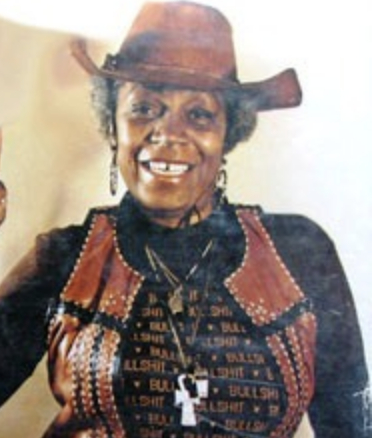
On this date in 1916, lawyer, activist, civil rights advocate and feminist Florynce Rae “Flo” Kennedy was born in Kansas City, Mo., to parents Wiley and Zella Kennedy. The second of five daughters, Kennedy grew up in a mostly white neighborhood, in which her father once stood up to members of the Ku Klux Klan with a shotgun. Kennedy wrote, “My parents gave us a fantastic sense of security and worth. By the time the bigots got around to telling us that we were nobody, we already knew we were somebody.”
Finishing high school at the top of her class in 1934, Kennedy opened a hat shop, performed on a radio show and operated an elevator. Her first political protest involved helping to organize a boycott when the local Coca-Cola bottler refused to hire black truck drivers. She moved to New York in 1942, graduating from Columbia University in 1948. In 1951 she became the first black woman to graduate from Columbia Law School, where she was admitted after threatening legal action on the grounds of racial discrimination.
Kennedy ran her own law practice, representing the estates of jazz greats Billy Holiday and Charlie Parker and the black power leader H. Rap Brown, among other Black Panthers. Despite tending to take on cases related to feminism and civil rights, Kennedy eventually realized that she needed to employ broader strokes to battle oppression and effect the kind of social change she had in mind. Turning to political activism, Kennedy cofounded the National Organization for Women (NOW) in 1966. That same year, she established the Media Workshop in an effort to influence the representation of black people in journalism and advertising, threatening boycotts and pickets.
At a 1967 anti-Vietnam War convention in Montreal, her speaking career was launched by a fiery invective against the refusal to allow Bobby Seale to discuss racism. Kennedy became known for her vitriolic tirades and incendiary comments, delivered in her characteristic cowboy hat and boots.
Along with feminism and racial equality, Kennedy also championed gay rights, as well as rights for prostitutes and other minorities. In 1971, Kennedy founded the Feminist Party, nominating Shirley Chisholm, a New York Democrat, for president, and helped to found the National Women’s Political Caucus. She founded the National Black Feminist Organization in 1975. Throughout her life, Kennedy championed pro-choice legislation, organizing a group of feminist lawyers to challenge New York State’s abortion law in 1969, influencing the legislature to liberalize abortion the next year.
With Diane Schulder, she coauthored a book called Abortion Rap in 1971. While Gloria Steinem is often unwittingly credited with the clever slogan, “If men could get pregnant, abortion would be a sacrament,” Flo coined it. The two were warm colleagues, once going on a speaking tour together.
Kennedy was known for her quick repartee. When asked by a male heckler, “Are you a lesbian?” she replied, “Are you my alternative?” Kennedy launched a suit against the Catholic Church in 1968 for spending money illegally to influence abortion legislation, arguing that its campaign violated the separation of state and church. Furthering her efforts to rescind the church’s tax-exempt status in 1972, Kennedy filed tax evasion charges against the church with the IRS. She was briefly married to Charles Dudley Dye in 1957 but he died soon after. D. 2000.
“If men could get pregnant, abortion would be a sacrament.”
— Flo Kennedy, who, with Gloria Steinem, popularized this iconic slogan, repeating a remark made to them both by a woman taxi-cab driver in Boston.
Sikivu Hutchinson
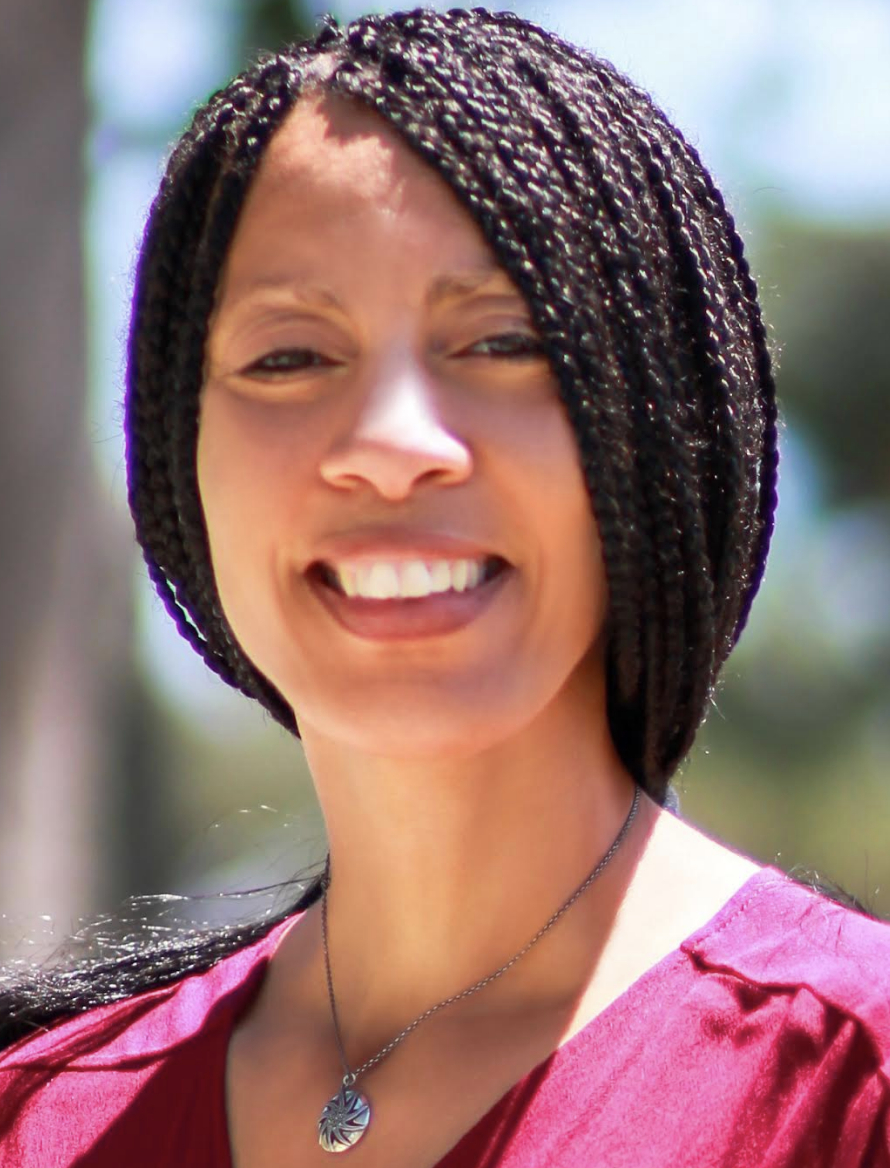
On this date in 1969, Black activist, author and feminist Sikivu Hutchinson was born in Los Angeles to Yvonne (Divans) and Earl Ofari Hutchinson Jr., respectively a retired English teacher and a noted analyst and commentator on race, politics and civil rights. Her grandfather, Earl Hutchinson Sr., published his autobiography A Colored Man’s Journey Through 20th Century Segregated America when he was 96.
Hutchinson earned a B.A. in anthropology from UCLA and a Ph.D. in performance studies from New York University in 1999. She taught women’s studies, cultural studies, urban studies and education at UCLA, the California Institute of the Arts and Western Washington University.
Her first book was Imagining Transit: Race, Gender, and Transportation Politics in Los Angeles (2003) and was followed by Moral Combat: Black Atheists, Gender Politics, and the Values Wars (2011), Godless Americana: Race and Religious Rebels (2013) and Humanists in the Hood: Unapologetically Black, Feminist, and Heretical (2020).
Her novel White Nights, Black Paradise (2015), with a focus on Black women, the Peoples Temple and the Jonestown massacre, was later adapted for the stage. Her novel Rock ’n’ Roll Heretic: The Life and Times of Rory Tharpe (2021) detailed the life of an ex-Pentecostal Black female electric guitarist who at one point says, “Those white boys on the major labels would never give an inch to a Negro woman playing race music.”
Hutchinson founded Black Skeptics Los Angeles (BSLA) in 2010 and is the founder of the Women’s Leadership Project, a high school feminists of color mentoring program in South Los Angeles. She received the Foundation Beyond Belief’s 2015 Humanist Innovator award and the Secular Student Alliance’s 2016 Backbone award. In 2020, the Humanist Chaplaincy at Harvard, a chapter of the American Humanist Association, named her one of its three Humanists of the Year.
BSLA has twice partnered with the Freedom From Religion Foundation by selecting recipients for FFRF’s Forward Freethought Tuition Relief Scholarships. In 2020, four secular students of color each received $5,000 stipends, double the amount of the inaugural awards.
Hutchinson has written and spoken extensively on the particular challenges of “coming out” as an atheist female of color. “[P]atriarchy entitles men to reject organized religion with few implications for their gender-defined roles as family breadwinners or purveyors of cultural values to children. Men simply have greater cultural license to come out as atheists or agnostics.” (Feminism: Opposing Viewpoints, April 1, 2012)
She has been married to Stephen Kelley as of this writing in 2023 for 17 years and has a nonbinary daughter, Jasmine Hutchinson Kelley. She’s a distance runner, acoustic guitarist and rock music enthusiast whose favorites include the Beatles, Neil Young, Sonic Youth, Parliament/Funkadelic, Hendrix/Band of Gypsys, Malina Moye, Brittany Howard, David Bowie and Bob Dylan.
“The white fundamentalist Christian stranglehold on Southern and Midwestern legislatures has proven to be a national cancer that further exposes the dangerous lie of a God-based, biblical morality.”
— Hutchinson, commenting on restrictive abortion bills, The Humanist magazine (July/August 2019)
